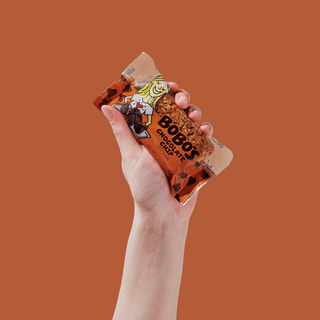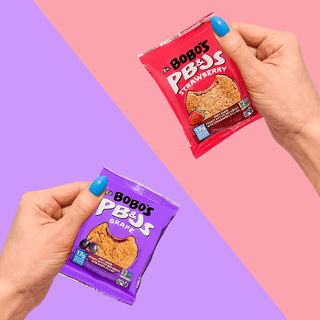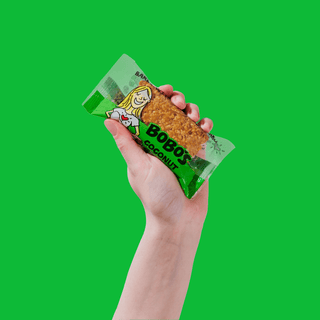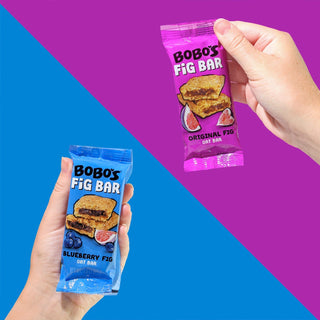Gluten-free diets have become widely popular over recent years. Whether this is because people assume gluten is bad for them, influencers talk about how great it is, marketing is especially strong, or something else, there’s still confusion about whether or not gluten is good for us. Keep reading to learn all about going gluten-free and answering the question, is a gluten free diet healthy?
What is a gluten-free diet?
A gluten-free diet is one without any foods that contain gluten – a protein in grains such as wheat, rye, and barley. You'll often find gluten in foods like pasta, pizza, bread, and cereal. Examples of gluten-free foods include eggs, meat, fruits, vegetables, and processed foods like gluten-free pasta and bread.
Those with celiac disease – about 1% of the world's population – experience an immune reaction from eating gluten, including intestinal tract damage and inflammation. Yet, it's quite common for grocery stores and restaurants to offer gluten-free options similar in quality and taste to their gluten counterparts. This is a key reason the diet has become popular among those without celiac disease. About 20-30% of Americans have, at some point, adopted a diet free of gluten.
If you're curious about this and asking yourself, "is gluten free healthier than eating foods with gluten?", keep reading.
Reasons to go gluten-free
Only certain people will benefit from going gluten-free. Here are the reasons why you'd want to consider doing so.
If you have celiac disease
The first group is those with celiac disease, which is an autoimmune response in which the body attacks the small intestine. Side effects can be intense and include nausea, abdominal pain, bloating, and diarrhea. For the sake of their health, these folks must maintain a gluten-free diet for life.
If you have a gluten sensitivity
People who are sensitive or intolerant to gluten may experience adverse reactions similar to those with celiac disease, but test negative for the disease. And, with no diagnostic tests for gluten sensitivity, they can unknowingly have a gluten intolerance. So, it makes sense that many notice improvements in their gastrointestinal symptoms from eliminating gluten (but it's always best to speak with your doctor about this before making dietary changes).
If you’re allergic to wheat
Those who are allergic to wheat should avoid foods containing gluten. This is because wheat triggers an immune reaction in them, causing symptoms like a headache, rash, or sneezing. Other grains, like rye and barley, are fine for those with a wheat allergy.
Why do others eat gluten-free?
So, if none of the above applies, is gluten free good for you? No evidence shows that keeping a diet free of gluten prevents disease or improves the health of anyone without celiac disease, a wheat allergy, or gluten sensitivity. However, studies found that up to 5% of those in Western societies who can tolerate gluten still choose to eliminate it from their diets.
This is for different reasons – for example, to lose weight (though it's not the lack of gluten that helps with this, but rather the elimination of refined carbohydrates and processed foods that happen to contain gluten). As well, many believe that a gluten-free diet is healthy and can improve general gastrointestinal symptoms. Certified gluten-free foods are also widely available, making them a common choice among shoppers.
What are the benefits of eating gluten-free? Is gluten free healthy?
If you're suffering from gluten sensitivity, wheat allergy, or celiac disease, following a gluten-free diet offers many benefits (and it's easier than you think with the best gluten-free snacks):
Helps to maintain nutrition and a healthy weight
Celiac disease symptoms of bloating, gas, diarrhea, and fatigue create nutritional deficiencies and, often, significant weight loss. So, a gluten-free diet can help to correct these things and get your metabolism functioning well.
Stops bloating
The excess gas produced by glutenous foods in those with an intolerance, an allergy, or celiac disease is uncomfortable and unpleasant. Avoiding foods with gluten can help to eliminate or reduce this, so you'll feel much better after eating.
Boosts energy levels
Gluten can cause drowsiness and fatigue in those who are allergic to wheat or sensitive to gluten. This is because gluten causes inflammation which damages the intestines and prevents proper absorption of nutrients like iron, which we need for energy. Iron deficiency can cause anemia, leading to ongoing fatigue. A diet free of gluten lets the body heal and restore its ability to absorb energy-boosting nutrients.
Improves bone health
Because celiac disease causes nutrients to go unabsorbed, calcium deficiencies can result which leads to the risk of bone issues like osteoporosis. Celiac patients who don't eat gluten can vastly improve their bone mineral density and, thankfully, many gluten-free foods are packed with calcium.
Alleviates joint pain
The inflammation caused by celiac disease's immune reaction can lead to joint pain throughout the body, particularly in the back, wrists, and knees. The good news is a totally gluten-free diet can help to reduce this pain.
Helps to replace processed or unhealthy food with healthier options
Many food items containing gluten – like desserts or fried foods – happen to be unhealthy or processed. This leads many people to ask, is gluten free healthy? While it isn't necessarily good or bad, going gluten-free may help some of us make better choices.
This is because there are other, healthier options to fill the hunger gap, and being forced to avoid gluten might just be the push that some of us need to take them. For example, all fruits and veggies are free of gluten. Increasing your intake of them is a great way to maintain a healthier lifestyle.
How to get started on a gluten-free diet
It's best to speak with a registered dietitian or your doctor before embarking on a gluten-free diet. This way, they can help you make a balanced eating plan that works specifically for your needs. During this process, keep the following tips in mind:
1. Learn what foods to avoid
Find out which foods specifically don't contain gluten, which foods you can find gluten-free versions of, and which foods naturally contain gluten. This will help you know exactly what you can and cannot eat.
2. Create a gluten-free kitchen
Particularly if you have celiac disease, it's best to separate your dishes, kitchen utensils, and other food prep items that touch foods with gluten from those you'll use for gluten-free items.
3. Read nutrition labels carefully
Carefully check package and nutrition labels for warnings – many non-gluten products may be processed in a facility with products containing gluten. As well, some ingredient lists may mention traces of wheat or certain artificial colors and seasonings that may contain gluten. Learn more with these gluten-free shopping tips.
4. Try delicious gluten-free foods
It may surprise you just how many tasty gluten-free food options are out there. For instance,
Bobo’s gluten-free bars and bites come in many flavors and taste great.
Gluten-free diet FAQs
Is there a downside to going gluten-free?
Depending on your needs and health, adopting a gluten-free diet may not serve you as well as others. Foods without gluten often contain fewer essential vitamins and minerals, like iron and folic acids, more sugar, and less fiber than their gluten-containing counterparts. As well, gluten-free foods tend to be more expensive than foods with gluten.
What happens to your body when you stop eating gluten?
When you switch from eating gluten to none, you might experience symptoms including nausea, dizziness, extreme hunger, constipation, and/or some level of anxiety or depression. Don't worry though, as these side effects often disappear within a few weeks. If they don't, be sure to speak with your doctor.
Why are many doctors against a gluten-free diet?
Many doctors are against a gluten-free diet for those who don't medically need it. This is mainly because gluten is highly nutritious, and its common substitutes don't contain the same nutrients our bodies need. For instance, studies show that gluten-free diets often lack iron, protein, folate, B12, zinc, niacin, riboflavin, and fiber. Gluten-free diets can also contain more saturated fats and cholesterol than gluten-containing foods.
Why is gluten harmful?
Gluten can cause harmful side effects in certain people, like those with a wheat allergy or, more severely, celiac disease. In cases like these, the body may treat gluten as a toxin that damages the small intestine lining and causes immune cells to attack, creating inflammation. Symptoms vary and can be mild – like bloating or fatigue – or severe – like malnutrition or intestinal damage.








